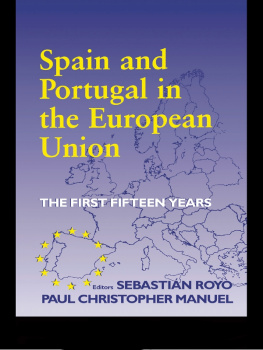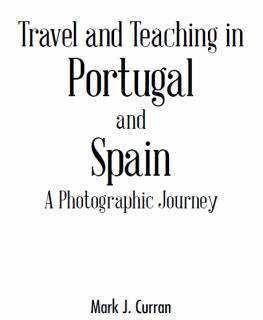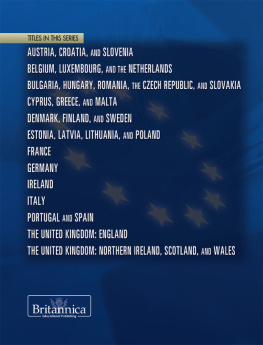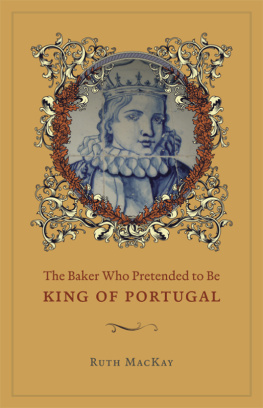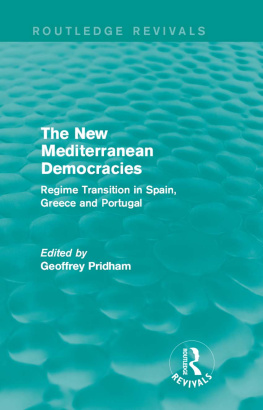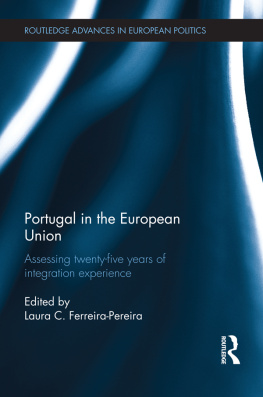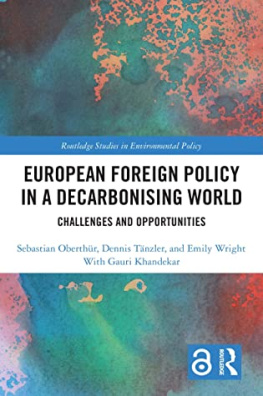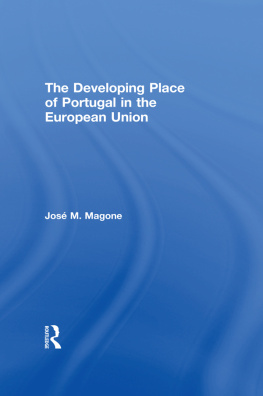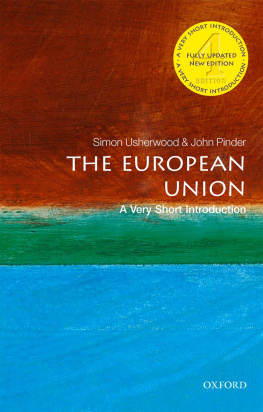Sebastián Royo - Spain and Portugal in the European Union: The First Fifteen Years
Here you can read online Sebastián Royo - Spain and Portugal in the European Union: The First Fifteen Years full text of the book (entire story) in english for free. Download pdf and epub, get meaning, cover and reviews about this ebook. year: 2003, publisher: Psychology Press, genre: Politics. Description of the work, (preface) as well as reviews are available. Best literature library LitArk.com created for fans of good reading and offers a wide selection of genres:
Romance novel
Science fiction
Adventure
Detective
Science
History
Home and family
Prose
Art
Politics
Computer
Non-fiction
Religion
Business
Children
Humor
Choose a favorite category and find really read worthwhile books. Enjoy immersion in the world of imagination, feel the emotions of the characters or learn something new for yourself, make an fascinating discovery.
- Book:Spain and Portugal in the European Union: The First Fifteen Years
- Author:
- Publisher:Psychology Press
- Genre:
- Year:2003
- Rating:3 / 5
- Favourites:Add to favourites
- Your mark:
- 60
- 1
- 2
- 3
- 4
- 5
Spain and Portugal in the European Union: The First Fifteen Years: summary, description and annotation
We offer to read an annotation, description, summary or preface (depends on what the author of the book "Spain and Portugal in the European Union: The First Fifteen Years" wrote himself). If you haven't found the necessary information about the book — write in the comments, we will try to find it.
Sebastián Royo: author's other books
Who wrote Spain and Portugal in the European Union: The First Fifteen Years? Find out the surname, the name of the author of the book and a list of all author's works by series.
Spain and Portugal in the European Union: The First Fifteen Years — read online for free the complete book (whole text) full work
Below is the text of the book, divided by pages. System saving the place of the last page read, allows you to conveniently read the book "Spain and Portugal in the European Union: The First Fifteen Years" online for free, without having to search again every time where you left off. Put a bookmark, and you can go to the page where you finished reading at any time.
Font size:
Interval:
Bookmark:
Regime Change and Ministerial Recruitment, 18502000
edited by Pedro Tavares de Almeida, Antnio Costa Pinto and Nancy Bermeo
edited by Kevin Featherstone and George Kazamias
Coping with the Consequences
edited by Nancy Bermeo
Women, Work and Welfare in the 1990s
edited by Mara Jos Gonzlez, Teresa Jurado and Manuela Naldini
Building a Euro-Mediterranean Regional Community
edited by lvaro Vasconcelos and George Joff
The European and International Challenges
edited by Richard Gillespie and Richard Youngs
edited by Raanan Rein
SEBASTIN ROYO
PAUL CHRISTOPHER MANUEL

LONDON PORTLAND, OR
This edition published in the Taylor & Francis e-Library, 2005.
Website http://www.frankcass.com/
Spain and Portugal in the European Union: the first fifteen years 1. European UnionSpain 2. European UnionPortugal 3. SpainPolitics and government19754. Portugal Politics and government19745. SpainSocial conditions 19756. PortugalSocial conditions20th century 7. SpainEconomic conditions19758. PortugalEconomic conditions1974 I. Royo, Sebastian, 1966II. Manuel, Paul Christopher III. South European society and politics 320.946
ISBN 0 7146 5518 X (Print Edition) (cloth)
ISBN 0 7146 8416 3 (paper)
Spain and Portugal in the European Union: the first fifteen years/ editors Sebastian Royo, Paul Christopher Manuel. p. cm. ISBN 0-7146-5518-X (Cloth)ISBN 0-7146-8416-3 (Pbk.) 1.
European Union-Spain. 2. Spain-Economic conditions19753. European Union-Portugal. 4. Portugal-Economic conditions19745. Democracy-European Union Countries. I. Royo, Sebastin, 1966II. Manuel, Paul Christopher. III. Title. HC241.25.S6S695 2003
341.24220946dc22 2003016391
Font size:
Interval:
Bookmark:
Similar books «Spain and Portugal in the European Union: The First Fifteen Years»
Look at similar books to Spain and Portugal in the European Union: The First Fifteen Years. We have selected literature similar in name and meaning in the hope of providing readers with more options to find new, interesting, not yet read works.
Discussion, reviews of the book Spain and Portugal in the European Union: The First Fifteen Years and just readers' own opinions. Leave your comments, write what you think about the work, its meaning or the main characters. Specify what exactly you liked and what you didn't like, and why you think so.

